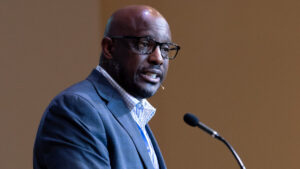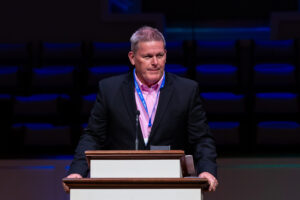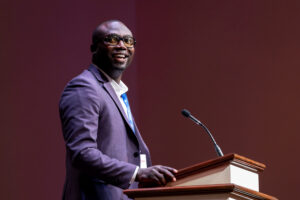1. Not using the Church Retirement Plan through GuideStone.
GuideStone does a very good job with our money. Their investments are competitive with secular companies. The Church Retirement Plan has unique tax treatment for ministers. Due to the dual tax status of ministers, making tax-deferred contributions saves on federal, state and self-employment taxes on the amount contributed. Also, during retirement years, some of the money may be received as a tax-free housing allowance. Using an IRA would not have the tax benefits of the Church Retirement Plan. (ordained ministers)
2. Missing the extra benefits provided by GuideStone and by the Alabama Baptist State Board of Missions.
If contributions are $50 and greater per month, GuideStone and the SBOM provide a survivor benefit up to $100,000 and a disability benefit of up to $500 per month for up to five years until age 65. These benefits apply while the minister is serving a Southern Baptist church in Alabama and making monthly contributions. In addition, ministers may have up to $210 contributed to their account annually by the SBOM if contributions are at least $105 per month and the church contributes through the Cooperative Program. These benefits do not require ordination.
3. Listening to the voices in the media saying that the Roth is the answer to every situation.
Roth means that contributions are made paying the taxes now to avoid taxes when withdrawn in the future. This is a very good tool. However, for an ordained minister, their first contributions should be tax deferred to the Church Retirement Plan. This saves on taxes now and in the future may be withdrawn as a tax-free housing allowance. If the minister is a good saver on track to fund housing needs in the future, then Roth contributions may be made if the minister desires to do so. GuideStone does have the Roth version of their retirement plans. (ordained ministers)
4. Thinking that the housing allowance rules change at the point of retirement.
Many ministers think that when they retire, they can ask for the Fair Market Value of the home furnished plus utilities for their housing allowance. They may ask for that amount, but the rules remain the same. What can actually be counted at tax time is the lowest of three values: 1. the amount requested, 2. the amount actually spent on housing expenses and 3. the fair market rental value of the home furnished plus utilities. Even some accountants ignore the fact that it is the lowest of the three values. (ordained ministers)
5. Taking a large lump sum to pay off the house.
Desiring to pay off the house at the point of retirement is a good goal. However, some ministers take a large lump sum from their GuideStone account to do so claiming it as housing. Often a large portion of the amount will exceed the fair market rental value furnished plus utilities and create a large amount of taxable income. Concerning the tax treatment, it might be better to spread the additional amounts out over a period of several years to lessen the tax burden. Even though a paid-off home is a worthy goal, the best use of the money might be to keep it in retirement savings to generate more needed monthly income during later years. (ordained ministers)
6. Thinking “I will never retire” and therefore not preparing.
Many ministers feel that their calling is for a lifetime, so they will never retire. This ignores the fact that, for some, their health will not allow them to continue to serve as they did in the past. Even though many 80-year-olds do serve, they are often not pastoring a large full-time church at that age. Also, sometimes the calling shifts, and a minister may use retirement years to serve in missions or in a ministry for which retirement savings provides the funding.
7. Not considering longevity and inflation during retirement years.
The total from all income sources – Social Security, retirement, other savings or continued work – could be elements of our total retirement budget. Most Americans and most ministers are not well prepared for retirement. In fact, one-third of Americans do not have any retirement savings. If you are not well prepared, goals may be achieved by increasing contributions now, planning to work a few more years or to work part-time during retirement. Many of us will live to be 90 and above, and inflation will happen each of those potentially 30 years. Is it too late? No, but it may require budget adjustments, working longer than anticipated and changes in retirement expectations to make it all work.
The above article is intended to be general information and not financial advice. For financial advice, contact your financial planner.
For more information, please contact State Missionary Lee Wright at 334-613-2241, 334-549-1383 or [email protected].






